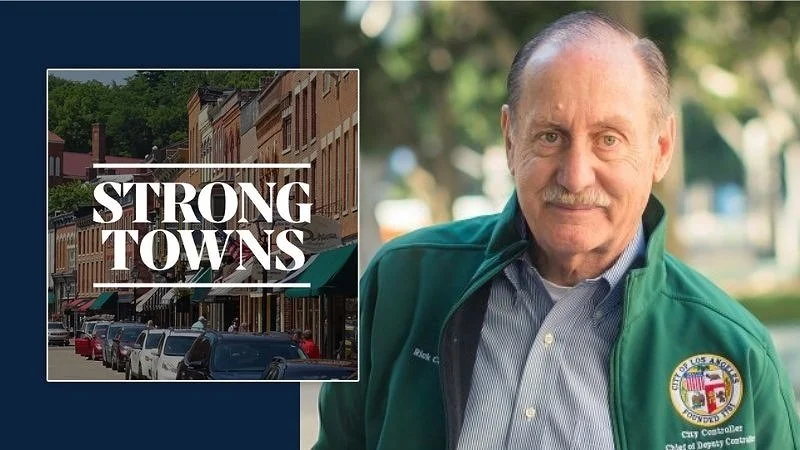Mayor Kevin McDonnell and Dave Alden, co-leader of Petaluma Urban Chat, join us from Petaluma, California. They discuss the Know Before You Grow initiative, a community-driven effort that's helped encourage housing development in the city's downtown.
Read MoreFrom school integration to budget reform, Rick Cole has spent his life encouraging cities to meet their residents’ needs in smart and sustainable ways. Here's his advice for city officials.
Read MoreOver 20 communities have used the Finance Decoder to turn dense spreadsheets into clear direction—proving that financial transparency doesn’t have to be dull.
Read MoreWe’re not just looking at a future where cities can’t count on federal support. We’re facing one where Washington itself might be powerless to intervene, even if it wanted to.
Read MoreWhat happens when everyday people dig into a city’s balance sheet? In Columbus, it sparked a three-hour conversation—and maybe a shift in mindset.
Read MorePrograms that rely on federal subsidies eventually collapse—or hollow out in slow motion. That doesn’t mean we should fight harder to protect those subsidies. It means we should build towns that don’t need them.
Read MoreZacTax is a financial analysis firm that helps city officials understand their revenue streams and make smarter financial choices. Today, Chuck is joined by its founders to discuss how they're helping build a culture of productive cities. (Transcript included.)
Read MoreCalifornia universities are facing $17 billion in deferred maintenance. Chuck and Abby explore how this problem arose, how it mirrors the challenges cities are facing, and what it'll take to manage this decline. (Transcript included.)
Read MoreOfficials in Vancouver, Washington, are considering annexing all 56 square miles of their urban growth area. This would come at a staggering cost.
Read MoreIf we’re serious about housing affordability, we can’t just count units. We have to care about where and how we build.
Read MoreChuck is joined by Carlee Alm-LaBar and Kevin Blanchard, former city staff members in Lafayette, Louisiana. They discuss the challenges of balancing competing demands and priorities when working in local government. (Transcript included.)
Read MoreFragile cities are overextended, under-resourced, and deeply dependent on decisions made far away. Here’s what that looks like.
Read MoreCities slide into insolvency not with a dramatic collapse, but with a slow, steady drift into financial fragility.
Read MoreEvery few years, the American Society of Civil Engineers releases its Infrastructure Report Card. Let’s be clear about what this report card actually is: industry propaganda, not unbiased analysis.
Read MoreToday, Chuck is joined by Mark Moses, author of “The Municipal Financial Crisis.” They cover everything from the dangers of relying on “balanced budgets” to the difference between city and business finances. (Transcript included.)
Read MoreDespite assertions to the contrary, a city's budget is almost exactly like a family budget.
Read MoreHouston’s new Popular Annual Financial Report tells a reassuring story of short-term growth and recovery, but it ignores the city's long-term financial trends. If things are going to improve, public officials need to confront reality.
Read MoreLocal officials often feel trapped, having to juggle large financial obligations with residents that resist tax increases. But delaying these tough decisions only makes them more painful and politically difficult. Bentonville, Arkansas, is experiencing that firsthand.
Read MoreHow do you direct city finances in a truly effective way? What role should the public play in a city’s financial decisions? Chuck and city finance expert Rick Cole cover these questions and more in this episode of the Strong Towns Podcast. (Transcript included.)
Read MoreCities across North America are financially imploding—not because of a lack of growth, but because of the pattern of growth itself. Few cities illustrate this pattern as vividly as Houston, Texas.
Read More



















